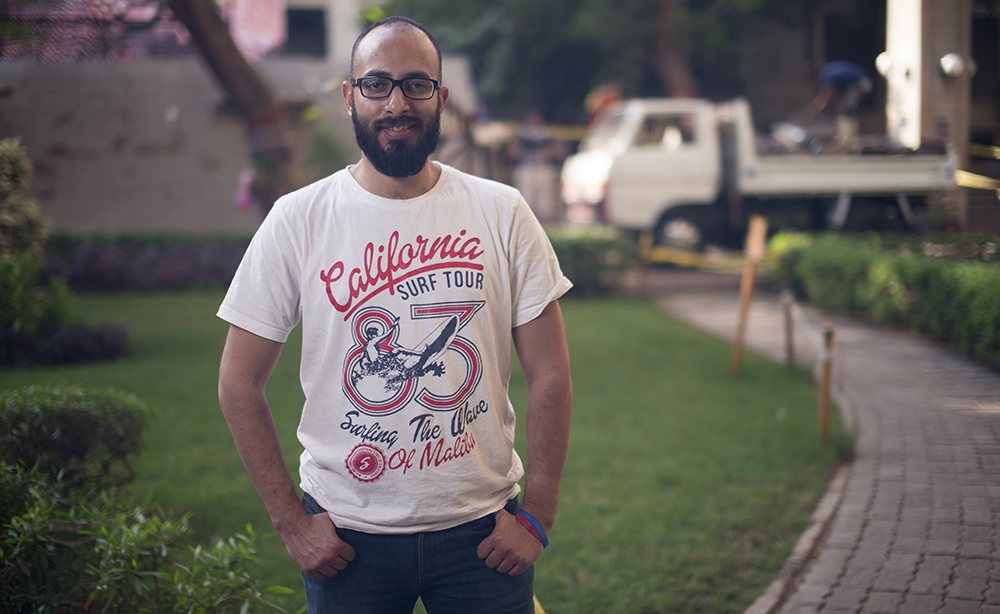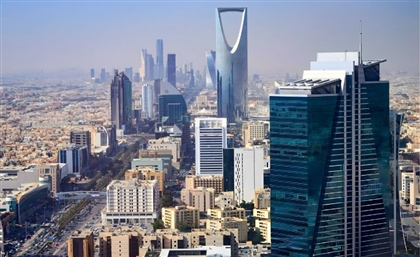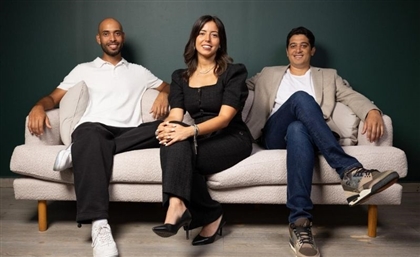Is Entrepreneurship an Antidote to Terrorism? These Entrepreneurs Aim to Spark Debate at SXSW
If they gather enough votes, Egyptians Muhammad Mansour and Tarek Nasr are taking to SXSW to discuss how entrepreneurship can defeat terrorism. Valentina Primo sits down with Iranian investor Kamran Elahian, whose Global Catalyst Foundation seeks to prove just that.

It's a busy summer afternoon in Cairo's Dokki neighbourhood, where Muhammad Mansour and Tarek Nasr are plotting their next big hit. The entrepreneurs, who've recently secured a massive investment from Numu capital for their social video analytical tool Mintrics, are quietly planning to conquer the global stage at the infamous South by Southwest (SXSW) festival in Austin, Texas, next March. Their pitch? "Funding Terrorism Vs Startups, the Battle for Influence,” they explain from their office, tucked away in a cozy house-turned-startup nested in a narrow street, away from the city’s bustling chaos.
"We want to represent Egypt and the region’s revolutionary startup spirit, aside from its political history and geographic location,” says Mansour, who co-founded Egypt’s mammoth Riseup Summit before moving on to Mintrics. "The regional phenomenon of sectarian militias in the last ten years have seen qualitative leaps in their growth because of the unlimited Saudi, Qatari and Iranian backing. Realising these problems, many countries around the world are making efforts to promote entrepreneurship and innovation,” he explains. ”Supported by a new generation of information and tech, strengthening technology integration and business innovation and promoting economic innovation are major next steps toward solving many of the root causes and eventually leading the region to a brighter future,” he continues.
Mansour's view on entrepreneurship is shared by many who nurture hope in the demise of extremism at the hands of an entrepreneurial wave that gives the region’s largest demographic group (more than 30 percent of the region’s population are between 15 and 29) a chance to regain control over their own destinies. One of them is Kamran Elahian, an Iranian investor without borders who took it upon himself to spark change with his Global Catalyst Foundation, an organisation aiming to create over 10 million innovation jobs in the next 10 years in the Middle east, North Africa and Asia - the AMENA region.

Iranian investor Kamran Elahian arrived to Silicon Valley at 18 and sold his first startup for $75 million. Today, he runs a global fund to combat extremism through innovation economies.
"These countries have a huge number of young people and their economy has been adversely affected because of the drop in the price of oil, which created really high unemployment rates,” he explains just as he gets off the stage at the Seedstars World finals, in Switzerland. It’s early April and the Swiss Convention Centre, surrounded by green fields and university students flocking in and out of auditoriums, has gathered some of the most promising entrepreneurs from emerging countries, to compete for an equity investment of up to $500,000. By the end of the event, Two of the six winners hail from the Arab world.
“The problem is unemployment,” he goes on to explain. "When people don’t have jobs, the only choice they have is to turn to crime or to terrorism. Plus, in most of these countries, which are Muslim-majority countries, if a young man doesn’t have a job he cannot find a wife - because the bride’s father has to approve the marriage. This creates significant stress for the young men, especially because if they don’t have a wife, typically in religious countries you cannot have any sex either,” he elaborates. In other countries, if you cannot have a wife or a girlfriend, they go get drunk and forget about it, but in these countries alcohol is not available either; so this creates a huge boiling pot,” he says.
The investor, who moved to the US at the age of 18, explains that terrorist organisations such as Boko Haram, ISIS, or Al Qaeda leverage on this huge pool of disenfranchised youth to recruit fighters. "They say: 'we give you jobs, we give you wives, we give you a sex-slave if you fight for us, and if you died in the next world, we give you many many more wives' so it’s a trend that have been increasing the rate of international terrorists’ activities.”
Entrepreneurship comes, thus, as not only a way for them to make a living but also, a necessary solution to tackle what he calls a "ticking bomb,” since the price of fossil fuels is "expected to drop to zero within the coming 20 years."
Elahian's story is one of the most inspiring entrepreneurial stories to hail from the region; not just because he sold his first company for $75 million when he was only 27; not just because he leads over a dozen philanthropy projects to promote digital literacy in Palestine, Tanzania, or his homeland, Iran; nor because he co-founded a global VC firm with $350 million under its management.
"I started my first company in 1980, right at the time of the hostage crisis,” he recalls. "I was an Iranian in Silicon Valley; I remember I used to seek investments and I had to raise $1.8 million at a time when investors would look at me and say: well, immigrants make great engineers, you want to be CEO? The only CEOs at the time were white, tall, older men in their 40s or 50s, so a young, short, chubby guy like me had a really difficult time,” he says, sparking laughter. “But I did not give up. I was turned down more than 90 times by different investors at that time, until finally two of them agreed to give me funds: it was 1.8 million, but it took 9 months - and three years later we sold the company for $75 million cash. It was nice to see a lot of people and VCs realising that immigrants can also be bosses,” he says with unexpected humility.

Mansour and Nasr are collecting votes until Friday to take off to Austin.
Now, having sparked philanthropic and tech-driven projects across the world, he focuses on a bigger vision: creating 'circular economies,’ fuelled by innovation. "The whole humanity needs to be united to put an end to terrorism, not by killing them; by creating innovation jobs for young people, so they have a chance to have something to live for rather than having something to die for,” Elahian asserts. "And there’s a twist: it is the first time in the evolution of our species that a young person can use his or her brain and access the cloud and the internet to create wealth out of nothing. Plus, it is the first time they don’t need approval of the old men who are in charge in these countries - either business monopolies run by the old men, or the typically dictatorial governments,” he says.
The MENA region, one of the most complex and volatile in the world, does nurture a promise: it host one of the world’s youngest populations, and one of the fastest growing online markets in the world – driven by an explosive growth in internet usage and data consumption - and at the helm of it all, young, tech-savvy entrepreneurs striving to develop digital industries.
Check out this link to support Mansour and Nasr's incursion to SXSW.
Video by @MO4Network's #MO4Productions.
Shot and Edited by Federico Corno.






















